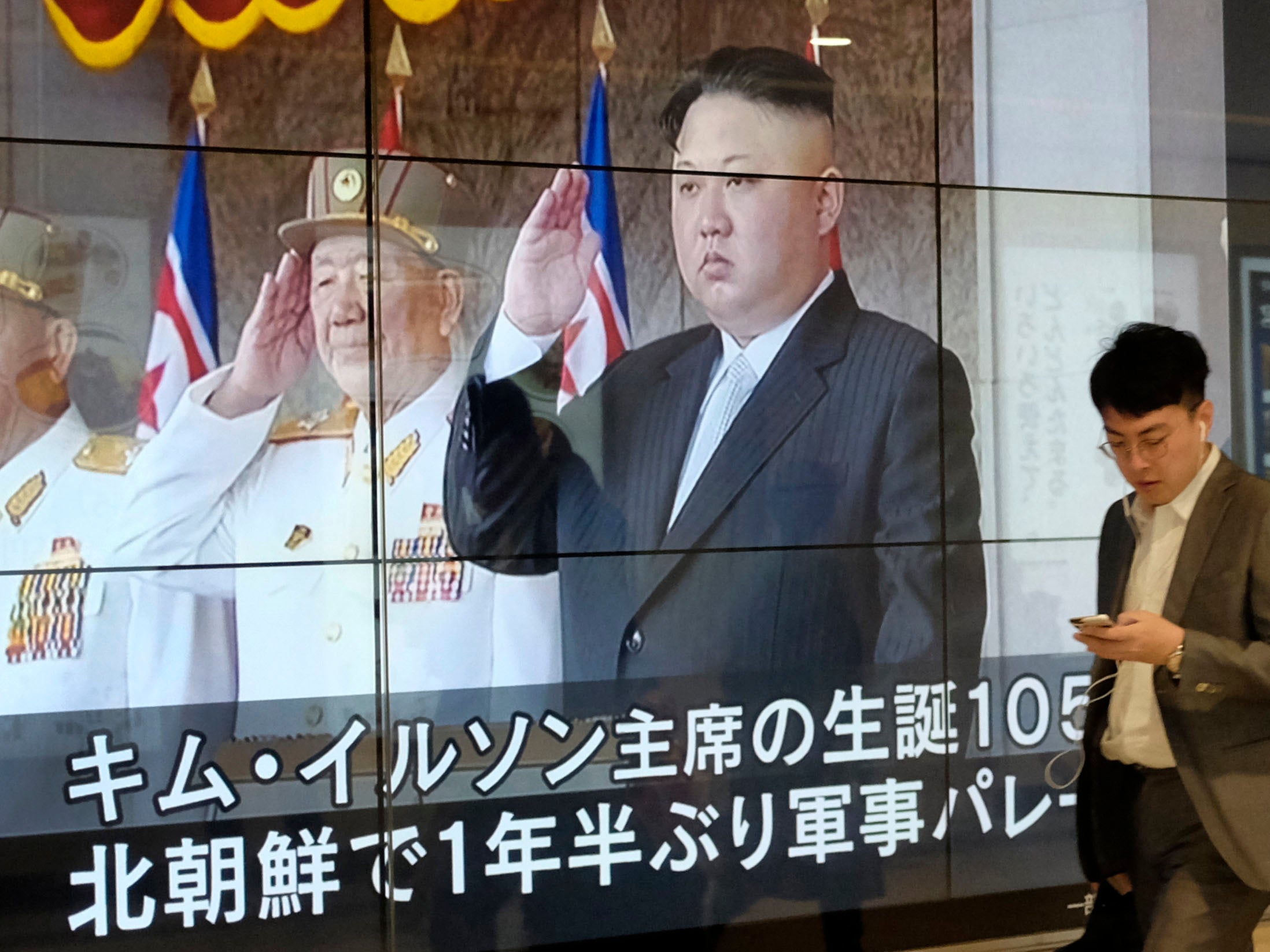China tells US and North Korea to ‘stop irritating each other’
Beijing attempts to play peacemaker as regional tensions threaten to boil over

Your support helps us to tell the story
From reproductive rights to climate change to Big Tech, The Independent is on the ground when the story is developing. Whether it's investigating the financials of Elon Musk's pro-Trump PAC or producing our latest documentary, 'The A Word', which shines a light on the American women fighting for reproductive rights, we know how important it is to parse out the facts from the messaging.
At such a critical moment in US history, we need reporters on the ground. Your donation allows us to keep sending journalists to speak to both sides of the story.
The Independent is trusted by Americans across the entire political spectrum. And unlike many other quality news outlets, we choose not to lock Americans out of our reporting and analysis with paywalls. We believe quality journalism should be available to everyone, paid for by those who can afford it.
Your support makes all the difference.China has called on all parties in the Korean standoff to stay calm and “stop irritating each other” a day after North Korea said the United States was pushing the region to the brink of nuclear war.
The United States has urged China, reclusive North Korea's lone major ally, to do more to rein in its neighbour's nuclear and missile programmes that have prompted an assertive response from the Trump administration, warning that the “era of strategic patience” is over.
The United States has sent a nuclear-powered aircraft carrier to Korean waters and a pair of strategic US bombers flew training drills with the South Korean and Japanese air forces in another show of strength this week.
Chinese Foreign Ministry spokesman Geng Shuang, asked about the bomber flights, the drills and North Korea's response, stressed that the situation was “highly complex” and sensitive.
“The urgent task is to lower temperatures and resume talks,” he told reporters.
“We again urge all relevant parties to remain calm and exercise restraint, stop irritating each other, work hard to create an atmosphere for contact and dialogue between all sides, and seek a return to the correct path of dialogue and negotiation as soon as possible.”
The flight of the two bombers came as US President Donald Trump raised eyebrows when he said he would be “honoured” to meet North Korean leader Kim Jong-un in the right circumstances, and as his CIA director landed in South Korea for talks.
North Korea said the bombers conducted “a nuclear bomb dropping drill against major objects” in its territory at a time when Trump and “other US warmongers are crying out for making a preemptive nuclear strike” on the North.
“The reckless military provocation is pushing the situation on the Korean peninsula closer to the brink of nuclear war,” the North's official KCNA news agency said on Tuesday.
Tension on the Korean peninsula has been high for weeks, driven by concern that the North might conduct its sixth nuclear test in defiance of UN Security Council resolutions.
The US military's THAAD anti-missile defence system has reached initial operational capacity in South Korea, US. officials told Reuters, although they cautioned that it would not be fully operational for some months.
China has repeatedly expressed its opposition to the system, whose powerful radar it fears could reach inside Chinese territory, just as Trump has praised Chinese President Xi Jinping for his efforts to rein in North Korea.
It was widely feared North Korea could conduct a nuclear test on or around 15 April to celebrate the anniversary of the birth of the North's founding leader, Kim Il Sung, or on 25 April, the 85th anniversary of the foundation of its Korean People's Army.
The North has conducted such tests or missile launches to mark significant events in the past.
Instead, North Korea held a big military parade featuring a display of missiles on 15 April and then a large, live-fire artillery drill 10 days later.
Trump drew criticism in Washington on Monday when he said he would be “honoured” to meet North Korea's young leader.
“If it would be appropriate for me to meet with him, I would absolutely, I would be honoured to do it,” Trump told Bloomberg News.
Trump did not say what conditions would be needed for such a meeting to occur or when it could happen.
“Clearly conditions are not there right now,” White House spokesman Sean Spicer said.
Trump warned in an interview with Reuters on Thursday that a “major, major conflict” with North Korea was possible, while China said last week the situation on the Korean peninsula could escalate or slip out of control.
North Korea test-launched a missile on Saturday that appeared to have failed within minutes, its fourth successive failed launch since March. It has conducted two nuclear tests and a series of missile-related activities at an unprecedented pace since the beginning of last year.
The North is technically still at war with the South after their 1950-53 conflict ended in a truce, not a treaty, and it regularly threatens to destroy the United States, Japan and South Korea.
North Korea said on Wednesday an American man it had detained in late April, the third US citizen being held by the isolated country, was intercepted because he was attempting to commit “hostile acts”.
North Korea, which has been criticised for its human rights record, has in the past used detained Americans to extract high-profile visits from the United States, with which it has no formal diplomatic relations.
Trump and Russian President Vladimir Putin on Tuesday meanwhile spoke by telephone about Syria and “about how best to resolve the very dangerous situation in North Korea”, the White House said.
Copyright Reuters
Join our commenting forum
Join thought-provoking conversations, follow other Independent readers and see their replies
Comments